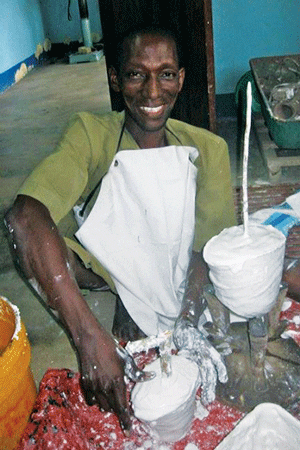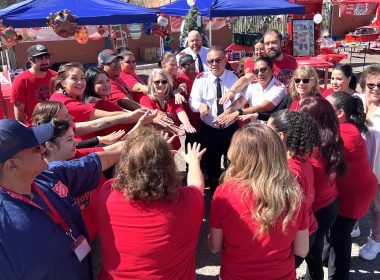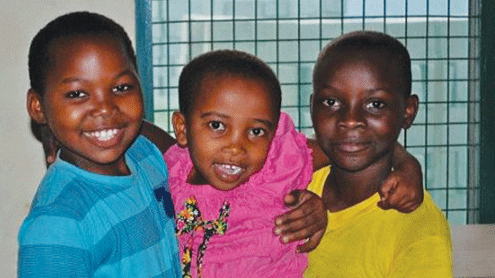
A video presentation leads to a trip across the world.
By Aleen Bradley
I made a promise this summer to a very special man named Mr. Magige to tell people about the children who attend Matumaini School in Dar es Salaam, Tanzania, to tell them about his work, and to tell about what God is doing in Tanzania, because I have been there to see it for myself. But, let’s not get ahead of ourselves—we’ll start at the very beginning. I’ve been told it’s a good place to start.
Last year, during chapel at territorial headquarters, the 2010-2011 Western Territorial Women’s Ministries Project video was shown, outlining the projects being undertaken around the world that year. Near the middle segment, my heart skipped at the sight of my mother’s picture. My mom, Major Sheila Bradley, was promoted to Glory during cancer treatment earlier in the year, and a project was being done in her name and honor at a children’s school in Tanzania by her training school friend and sessionmate, Major Joy Paxton.

Photos by Aleen Bradley
The moment I returned to my desk, I wrote to Major Paxton, asking her about the Matumaini School and the Mbgala Girls’ Home where this money would be used. I learned that the Matumaini School provides care for 196 students with varying physical and learning disabilities. The school also takes on a number of albino children every year, to protect them from a small part of society who hold superstitious prejudices. The Mbgala Girls’ Home a few miles away takes in young girls who have been trafficked and abused and gives them a temporary home, where they receive care and education. The girls help to run quite a large farm where they grow much of their food and also sell to the surrounding community.
After a few months of exchanging emails, I was invited to come see the place for myself. When my plane touched down in Tanzania on June 26, I was introduced to a place that, over the course of eight days, would challenge and move me deeply.
At The Salvation Army compound, the first place I visited was Mr. Magige’s workshop, where he is known as “Professor” Magige. Here Magige and his staff produce and repair shoes specially made to accommodate physical disabilities or deformities. While I worked there, we took drawings and measurements for every child in Standard (Grade) 7 so that each of them could graduate with a new pair of shoes.
For those children who used wheelchairs, did not have feet or legs, or were not able to use their legs, we took plaster casts so that we could make molds for “shoes” to fit their hands and/or feet. I was amazed at this process, because it often seemed unlikely that the materials we used or the ways in which we started projects would lead us to what turned out to be a very clever and efficient finished product.

The children loved to be around Magige, and even more often after I began to assist him, so that he could translate their questions to me from Swahili to English. At other times, I would be “kidnapped” by children who considered my time at the workshop of much less importance than teaching me rock games and common Swahili words and phrases. Whenever I would leave for the day, the children anxiously asked if I was coming back soon. Initially I worried that witnessing the struggles and disabilities of these children would make building relationships difficult, but I was so struck by the uninhibited way in which they approached life that the things they lacked physically seemed irrelevant.
The territorial project monies fulfilled what we might view as a relatively simple need, but will have great impact. Some of these needs can’t be photographed or documented, including educational resources, while others are welcome visual changes. In the hall, where the children hold worship services on Saturday evenings and convene for other activities, were quite a number of rusted and broken metal chairs. Standing alongside them, having just been delivered, were the brand new full-backed chairs purchased with the money from the USA Western Territory. These chairs would not only be functional and safe, but they would accommodate the different physical needs of the children.
I often rely on song lyrics to describe when I am unable to articulate a certain feeling, and in this case I am reminded of Audrey Assad’s “Blessed Are the Ones,” where she sings, “When all we have is what we need, it’s joy we will sow. Blessed are the ones, O blessed are the ones, blessed are the thirsty ones.”
What I have seen are children who are filled with joy and have a thirst for the Lord. For everyone who made these projects possible, I have accepted hugs, smiles, drawings and new friendships on your behalf, and I thank you for pouring more in their cups with your love. It’s important to remember that the people we give to are real, they have real needs and are truly grateful for what is given to them. God is doing a wonderful work in Tanzania, through you and your contributions.











